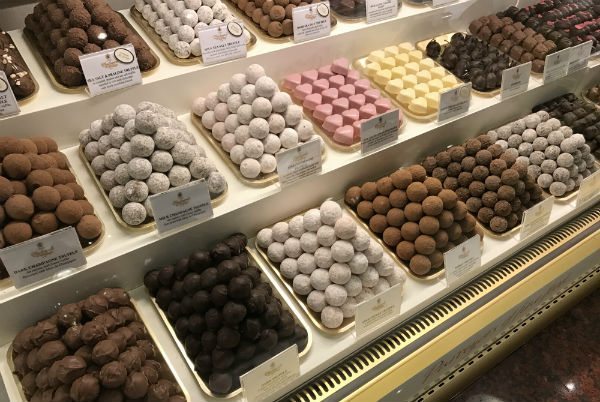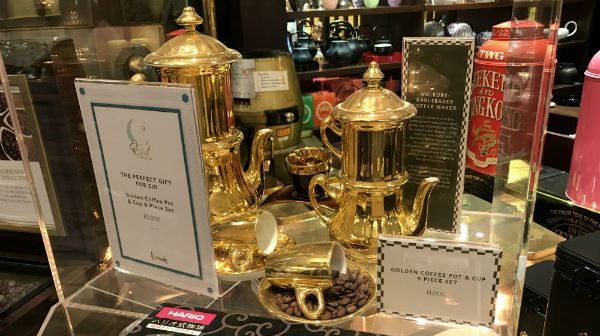How to Achieve the Competitive Edge With Your POS
What Does “Competitive Edge” Really Mean?
Just the other day, I was going through some articles and came across this sentence: “The best way for a retailer or brand to go about finding success is to differentiate itself from the competition, whilst focusing on the needs and wants of its customers”.
That made me think about what it actually means for a business to “differentiate itself from the competition”.
In today’s business world, there’s a very strange paradox: although many companies develop unique products, come up with innovative solutions to problems and craft creative marketing strategies, they never gain the competitive edge promised by marketing gurus.
That’s partly because the products and solutions most companies provide nowadays are similar to those offered by their industry peers.
Then, how can a retailer or brand set its business apart from the crowd?
It seems that, to outperform our competitors, we need to start thinking outside the box in the real sense of the word.
With that in mind, we can’t help but ask: In a society governed by social norms that require everyone to fit nicely into “square little boxes”, including in terms of marketing, do we still possess the ability to really think outside the box? But before answering this question, another important point we should address is: What does “thinking outside the box” actually mean in business?

Whilst we all know that “thinking outside the box” involves looking at things from unique perspectives, conceptualising problems in new, innovative ways and putting together unexpected, even unconventional ideas in order to discover the best solutions possible, applying this concept to a marketing strategy can be quite tricky and even dangerous, as it can lead a business in the wrong direction.
However, a few marketing professionals, who had not only the ability to think outside the “traditional” box but also the courage to take risks, have developed some really successful marketing concepts. An excellent example is the concept of the “Purple Cow” introduced by Seth Godin.
Unquestionably, creative thinking remains an essential pillar on which a business can build a sustainable competitive edge. But it’s not the only one. As surprising as it may seem, perfection is equally important.

Although perfection is very hard to achieve and maintain in what we do, striving for perfection is the only way to reach excellence. And, at a very basic level, excellence indirectly “means delighted customers”, according to Leon Edwards.
This is a very interesting point of view that many professionals choose to adopt and promote nowadays, including Paul Russell Smith, as he explains in the book, “Great Answers to Tough Marketing Questions”.
But how can you achieve excellence? In addition to refusing to follow the same cookie-cutter approaches to doing business, excellence can be achieved not necessarily by doing extraordinary things but by “doing ordinary things extraordinarily well”, according to John W. Gardner, politician, writer and leadership expert.
“Doing ordinary things extraordinarily well” involves putting customers in the centre of everything you do. That means listening to your customers, exceeding their expectations and showing that you really care. Only then, you’ll be able to create “a vision of perfection centred on the customer”, as Ken Blanchard said.
Going one step further, just imagining what a perfect product would look like isn’t enough. You need to find out your customers’ vision of their perfect products and services.
Obviously, the best way to go about this is to use customer-centric solutions integrated with advanced technologies like AI, VR and proximity sensors along with data gathering and predictive analytics tools. This way, you can get all the forward-looking insights you need in order to offer your customers products and services that match their vision of perfection.

But in order to achieve excellence and even perfection in business, retailers and brands need to do everything they can to exceed their customers’ expectations. That often means creating products or services that are better than the ones imagined by their potential customers.
For that, they need to overcome limiting ideas and beliefs. In a practical sense, overcoming limitations comes down to “suspending our agendas”, according to Leon Edwards, whether we refer to the agendas we prepare for meetings, or to “agendas” in terms of adopting marketing strategies, which may no longer be effective in today’s dynamic business environment, or in terms of developing products or services that don’t really match evolving consumer demands.
Leon Edwards explains that focusing on getting our points across might prevent us from listening to our customers and understanding what’s important to them.
 The key takeaway here is:
The key takeaway here is:
By focusing more on your customers and putting the things you want to tell them aside, “the chances are you’re going to listen to what they are saying”, said Leon Edwards. And that can completely change the outcome, allowing you to “sell not by presenting your products and services but by listening to your customers and putting yourself in their shoes”, as he concluded.
Therefore, by “suspending your agenda” and using all the tools and technologies you have at your disposal, you’ll be able to provide the best possible products and services that can offer your customers the value they expect and deserve.
[fl_builder_insert_layout id=2275]